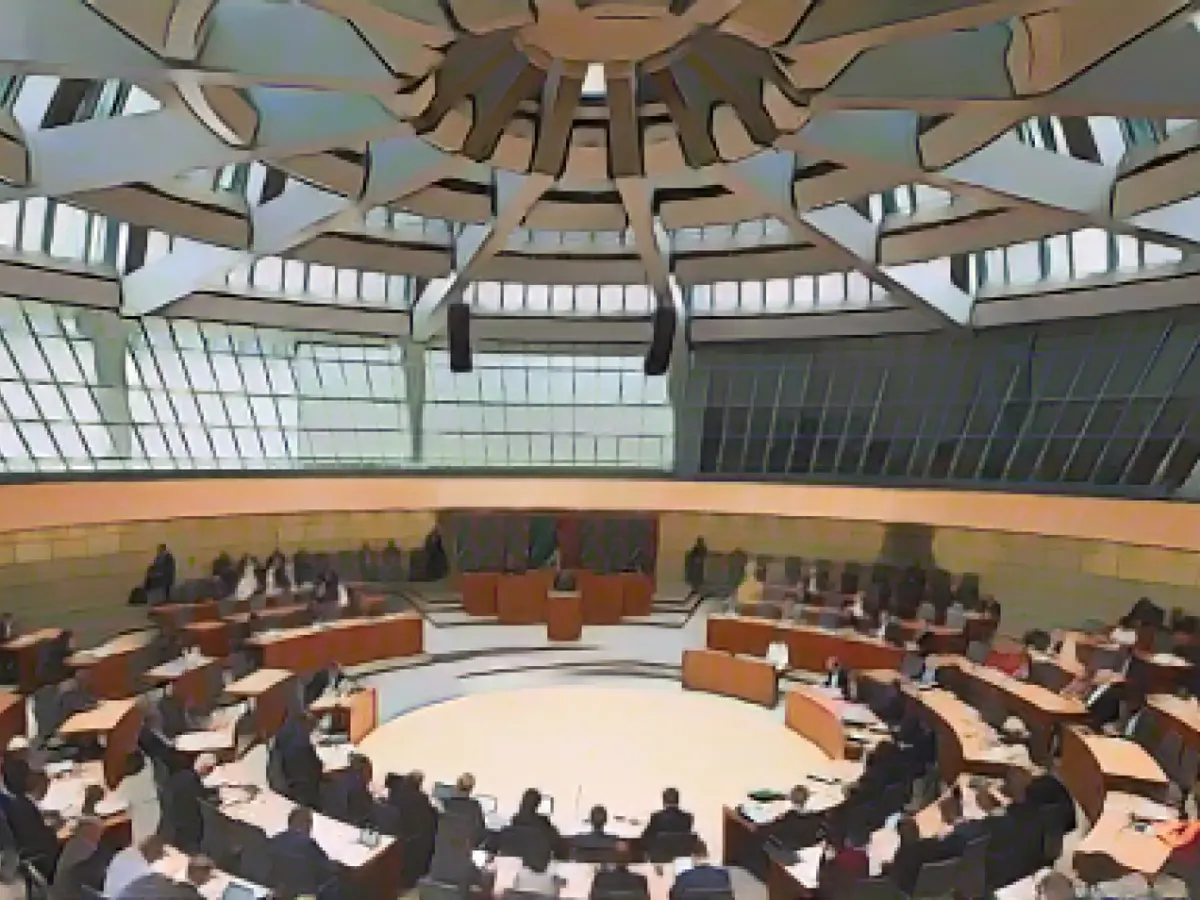Rude Politicians Face Fines in North Rhine-Westphalia State Parliament
The state parliament of North Rhine-Westphalia is set to face administrative fines for rowdy politicians, following a proposal from President André Kuper. The CDU, SPD, Greens, and FDP have all agreed on an amendment to the state parliament's rules of procedure, which would result in a fine of 1000 euros for the first offense and 2000 euros for a repeat offense.
A Call for Change
According to Landtag President Kuper, there are politicians who deliberately provoke, bring hatred, and agitation into debates, damaging the image of the state parliament. He considers the degradation of parliament to be unacceptable and that those who mock democracy and ridicule MPs must face consequences.
Efficiency through Direct Deduction
The FDP’s Marcel Hafke supports the direct deduction of fines from MPs' salaries to ensure that the regulation is not just a piece of paper but is effective in everyday political life. This approach strikes a blow against unruly behavior without creating a long, drawn-out process.
Debate on Changes and Standards
Today, parliamentary leaders will meet to discuss administrative fines and other changes to the parliament's rules of procedure. Among these changes are deadlines and parliamentary materials. The disciplinary fine is set to serve as an escalation stage between being called to order and being ejected from the plenary chamber.
The Rise of Provocative Behavior
The increase in disciplinary measures in recent years is largely due to the entry of the right-wing populist AfD into parliament, leading to around half of the disciplinary measures being directed toward this group. While some inject needless provocation into debates, others face serious punishments for their actions.
The Role of Political Groups
The CDU's Matthias Kerkhoff, along with other parliamentary group leaders, is determined to protect parliamentary business from provocations and unparliamentary behavior, particularly from the AfD. The SPD's Ina Blumenthal believes that the previous warning system has lost its deterrent effect, especially on a certain parliamentary group.
Fair Application of Regulations
The German press agency Deutsche Presse-Agentur reports that the administrative fine is intended to serve as a means of enforcing rules, as well as ensuring that everyone is held accountable under the same standards, regardless of their political affiliations.
The administrative fine is just one aspect of the proposed changes to the parliament's rules of procedure. These changes also include tightening deadlines and improving parliamentary materials. North Rhine-Westphalia's state parliament has issued a total of 47 reprimands and reprimands in the current parliamentary term.
The FDP's Marcel Hafke sees direct deductions as the key to making sure the new regulation is actually put into practice, while the Greens' Mehrdad Mostofizadeh has previously urged introducing a disciplinary fine to enforce stricter sanctions. Ina Blumenthal, of the SPD, believes that the previous system of verbal warnings has lost its deterring effect and that the AfD now understands and responds to the use of financial consequences.
Enrichment Data
Administrative fines can be a valuable tool in curbing inappropriate behavior and unparliamentary language in state parliaments. However, their effectiveness depends on several factors, including the specific laws and regulations in place, the fairness and consistency in their application, and the broader political climate. In a highly polarized environment like North Rhine-Westphalia, enforcement can be particularly challenging. A strong commitment to maintaining parliamentary decorum and consistent rule application is essential for the fines to be effective.








